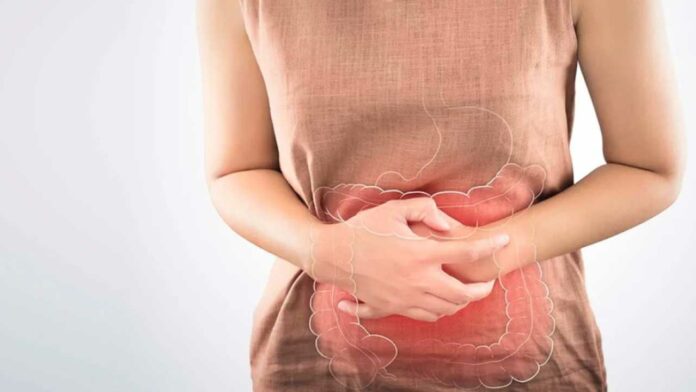Constipation, a frequent challenge in digestion, arises when bowel movements diminish in frequency or complexity. On the other hand, chest pain is often associated with heart problems, but can constipation cause chest pain? Let’s explore this intriguing topic and the potential connection between constipation and chest pain.
The Connection Between Constipation and Chest Pain
Mechanism of Constipation-Induced Chest Pain
Constipation can lead to the accumulation of stools in the colon, causing increased pressure within the digestive system. This strain may apply pressure to neighboring organs such as the stomach and diaphragm, possibly inciting discomfort in the chest region.
Common Symptoms Experienced
Individuals experiencing constipation-induced chest pain may also encounter bloating, discomfort, and a sensation of fullness in the abdomen. These symptoms can exacerbate the feeling of pressure in the chest area, leading to discomfort or pain.
Understanding the Causes
Digestive System Pressure
The buildup of fecal matter in the colon exerts pressure on surrounding organs, including the stomach and diaphragm. This pressure has the potential to extend towards the chest, leading to sensations of discomfort or pain.
Irritation of the Diaphragm
Constipation can irritate the diaphragm, the muscle responsible for breathing. Irritation of the diaphragm can cause referred pain to the chest region, mimicking symptoms of cardiac-related chest pain.
Nerve Pathway Involvement
An intricate network of nerves within the gastrointestinal tract can transmit signals of discomfort or pain to other parts of the body, including the chest. Constipation-induced stimulation of these nerves can contribute to the perception of chest pain.
Identifying Symptoms
Types of Chest Pain Associated with Constipation
Chest discomfort associated with constipation is frequently characterized by a dull, persistent ache or pressure felt in the chest area. This sensation might intensify during bowel movements or following meals.
Additional Symptoms to Watch For
In addition to chest pain, individuals experiencing constipation may also encounter bloating, abdominal cramping, and difficulty passing stools. The intensity and duration of these symptoms may differ from person to person.
Risk Factors
Lifestyle Factors
A sedentary lifestyle, low-fiber diet, dehydration, and inadequate physical activity can increase the risk of constipation, consequently predisposing individuals to chest pain.
Medical Conditions
Certain medical conditions such as irritable bowel syndrome (IBS), gastrointestinal disorders, and neurological conditions can exacerbate constipation and contribute to the development of chest pain.
When to Seek Medical Attention
Warning Signs
If you experience persistent or intense chest discomfort, along with symptoms like shortness of breath, lightheadedness, loss of consciousness, or excessive sweating, it’s imperative to seek urgent medical care. These signs could signal a potentially severe underlying issue.
Importance of Consulting a Healthcare Professional
It is essential to consult a healthcare professional if you experience recurrent or unexplained chest pain, as it can signify an underlying health issue that requires prompt evaluation and treatment.
Diagnosis and Treatment
Medical History and Physical Examination
Healthcare providers may conduct a thorough medical history review and physical examination to assess the symptoms and potential underlying causes of chest pain.
Diagnostic Tests
Diagnostic tests such as blood tests, imaging studies (e.g., X-rays, CT scans), and endoscopic procedures may be performed to evaluate the gastrointestinal tract and rule out other possible causes of chest pain.
Treatment Options
Treatment for constipation-induced chest pain may include dietary modifications, increased fluid intake, fiber supplements, laxatives, and medications to alleviate symptoms and promote regular bowel movements.
Preventive Measures
Dietary Adjustments
Eating a balanced diet abundant in fiber, fruits, vegetables, and whole grains can play a pivotal role in averting constipation and lowering the likelihood of experiencing related chest discomfort. Adequate hydration is also essential for maintaining bowel regularity.
Lifestyle Changes
Incorporating regular physical activity, maintaining a healthy weight, and practicing stress management techniques can support overall digestive health and prevent constipation-related complications.
Conclusion
In conclusion, constipation can indeed cause chest pain, albeit indirectly. The buildup of stool in the colon can exert pressure on the surrounding organs and irritate the diaphragm, leading to discomfort or pain in the chest region. However, it is crucial to differentiate between constipation-induced chest pain and cardiac-related chest pain to ensure appropriate management and treatment.
FAQs ( Frequently Asked Questions )
1. Can constipation cause severe chest pain?
Yes, severe constipation can lead to significant pressure buildup within the digestive system, resulting in severe chest pain.
2. Is there a link between chronic constipation and heart disease?
While chronic constipation itself may not directly cause heart disease, certain lifestyle factors associated with constipation, such as sedentary behavior and poor diet, can contribute to cardiovascular risk factors.
3. What are the key distinctions between chest pain originating from constipation and those stemming from heart-related conditions?
Chest pain associated with constipation is typically dull or aching and may worsen with bowel movements. Heart-related chest pain, on the other hand, often presents as a squeezing or pressure sensation and may be accompanied by other symptoms such as shortness of breath or nausea.
4. Are there any natural remedies to relieve constipation-induced chest pain?
Natural remedies for constipation-induced chest pain may include increasing fiber intake, staying hydrated, exercising regularly, and using over-the-counter laxatives or stool softeners as needed.
5. Could chest pain caused by constipation indicate a significant underlying medical issue?
While constipation-induced chest pain is often benign and resolves with appropriate treatment, it can occasionally indicate a more serious underlying condition, such as intestinal obstruction or ischemic heart disease. It’s crucial to promptly seek medical assistance if you encounter enduring or intense chest discomfort.

